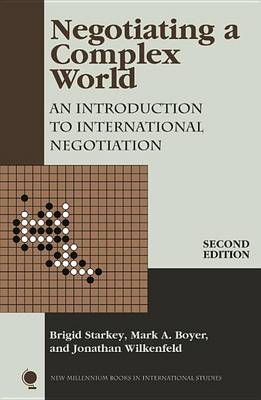New Millennium Books in International Studies
2 total works
International Negotiation in a Complex World
by Brigid Starkey, Mark A. Boyer, and Jonathan Wilkenfeld
Published 1 December 2009
The process of negotiation, standing as it does between war and peace in many parts of the globe, has never been a more vital process to understand than in today's rapidly changing international system. Students of negotiation must first understand key IR concepts as they try to incorporate the dynamics of the many anomalous actors that regularly interact with conventional state agents in the diplomatic arena. This hands-on text provides an essential introduction to this high-stakes realm, exploring the impact of complex multilateralism on traditional negotiation concepts such as bargaining, issue salience, and strategic choice. Using an easy-to-understand board game analogy as a framework for studying negotiation episodes, the authors include a rich array of real-world cases and examples to illustrate key themes, including the intensity of crisis situations for negotiators, the role of culture in communication, and the impact of domestic-level politics on international negotiations. Providing tools for analyzing why negotiations succeed or fail, this innovative text also presents effective exercises and learning approaches that enable students to understand the complexities of negotiation by engaging in the diplomatic process themselves.
Negotiating a Complex World
by Brigid Starkey, Professor Mark A Boyer, and Jonathan Wilkenfeld
Published 28 September 1999
Negotiating a Complex World introduces undergraduate students of International Relations to the high stakes world of international negotiation. The book uses the analogy of a board game as an organizing technique and includes many real-world cases and examples to illustrate important concepts and relationships. This innovative text also provides exercises and learning approaches to enable students to understand the complexity of negotiation by engaging in aspects of the diplomatic process themselves. Visit our website for sample chapters!

